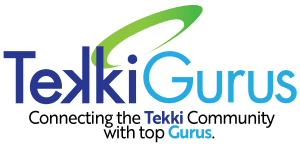KM as an Essential Part of Modern Business
- The category of knowledge management has changed dramatically over the last decade, with many tools and solutions becoming obsolete due to the rise of cloud-based content management systems (CMS) and collaboration platforms.
- The rate of change can sometimes outpace our organizational ability to keep up, resulting in a lack of adoption or engagement with new platforms.
- The needs of knowledge management have not changed, however: we still want/need the ability to capture and store all assets, simple search capabilities, and automated classification/correlation/contextualization.
- With the increase in data generation comes an increase in complexity – requiring a more strategic approach to knowledge management that takes into account all inputs and outputs for continual review & improvement.
With the ever-increasing amount of data being generated every day, it is no surprise that knowledge management has become one of the most important aspects of modern business. But what exactly is knowledge management? How has it changed in the last decade? And how can you keep up with these changing trends? In this blog post, we will explore these questions and more.

Photo by Susan Q Yin on Unsplash
What is Knowledge Management?
In the early days of knowledge management, the focus was on cataloging and storing information so that it could be easily retrieved by those who needed it. This typically involved using tools like document management systems and intranets to store and organize content. However, as the digital landscape has evolved, so too has the way in which organizations manage their knowledge. With the rise of cloud-based CMSs and collaboration platforms, many of the traditional tools and solutions used for knowledge management have become obsolete. These newer platforms provide a more user-friendly way to manage content, making it easier for employees to find the information they need and share knowledge across the organization. As a result, they are quickly becoming the preferred choice for businesses of all sizes.
The foundational requirements for knowledge management are simple yet crucial. They include capturing and storing all assets, simple search capabilities, and automated classification, correlation, and contextualization. Capturing and storing all assets means not only collecting information but also using it in meaningful ways. Simple search capabilities allow users to quickly find relevant content without having to sort through large amounts of data. Automated classification, correlation, and contextualization enable organizations to make sense of the data they have collected by making connections between different pieces of information from multiple sources. This allows them to draw insights from their data more easily.
Challenges of Knowledge Management
One of the biggest challenges when it comes to knowledge management is focusing too much on user experience (UX) while neglecting core business and IT requirements. UX design should be an integral part of any knowledge management system; however, if UX takes precedence over other requirements such as data security or scalability, then you may end up with a system that does not meet your needs. Another challenge is dealing with the increased complexity caused by the rapid growth in data generation. As more data is created, organizations must find ways to make sense of this abundant information quickly and efficiently without sacrificing accuracy or security.
The rate of change can sometimes outpace our organizational ability to keep up, resulting in a lack of adoption or engagement with new platforms. Change is essential for organizational success, but it can also be disruptive. To minimize the negative impacts of change, organizations need to ensure that they have the right processes and structures in place. They also need to identify the early adopters and laggards within the organization and tailor their communications accordingly. By understanding the potential impacts of change, organizations can increase the chances of successful adoption and engagement with new platforms.
Any organization that wants to be successful needs to have a good understanding of both their UX and their core business and IT requirements.
Too often, organizations get caught up in focusing on one or the other, and this can lead to big problems. If an organization focuses too much on their UX, they may end up neglecting their core business requirements. This can lead to a loss of customers or even to the failure of the business. On the other hand, if an organization focuses too much on their core business requirements, they may end up neglecting their UX. This can lead to a poor user experience that drives customers away. The key is to find the right balance between the two. By understanding both their UX and their core business requirements, organizations can set themselves up for success.
A Strategic Approach to Knowledge Management
In today’s world, data is generated at an unprecedented rate. This increase in data complexity requires a more strategic approach to knowledge management that takes into account all inputs and outputs for continual review and improvement. In the past, knowledge management was primarily focused on stored data. However, with the advent of big data and the need to manage increasing amounts of data, it has become clear that knowledge management must also take into account data streams. By taking all inputs and outputs into account, we can create a more holistic view of our data and make more informed decisions. Additionally, this approach can help us to identify patterns and trends that would otherwise be hidden in the data noise. Ultimately, this strategic approach to knowledge management will help us to better understand our data and make more informed decisions.
The best way to ensure successful knowledge management is by taking a strategic approach that focuses on both inputs and outputs for continual review and improvement. This approach should also prioritize collaboration and sharing as key components; this encourages teams to work together effectively while still maintaining control over their respective areas of expertise. Finally, an effective strategy should ensure that users have access to accurate information so that they can make informed decisions in a timely manner without having to spend hours sifting through irrelevant material or outdated resources.
Where To Go From Here
In a rapidly changing world, it can be difficult to keep up with the latest trends. This is especially true in the field of knowledge management, where new technologies and approaches are constantly emerging. However, despite the changes, the basic needs of knowledge management have remained the same. We still need the ability to capture and store all assets, simple search capabilities, and automated classification/correlation/contextualization. While the methods may change, these core needs will always be essential to effective knowledge management.
Knowledge management is an essential part of modern business operations; however, like any other system, it requires careful planning and implementation in order for it to be successful. By taking into account core requirements such as asset capture & storage as well as automated classification & correlation capabilities alongside user experience & data security concerns when establishing a knowledge management system for your organization you can ensure that your team has access to accurate information when they need it most—allowing them to make informed decisions faster than ever before!





1 Response
[…] KM as an Essential Part of Modern Business [buckleyPLANET] […]